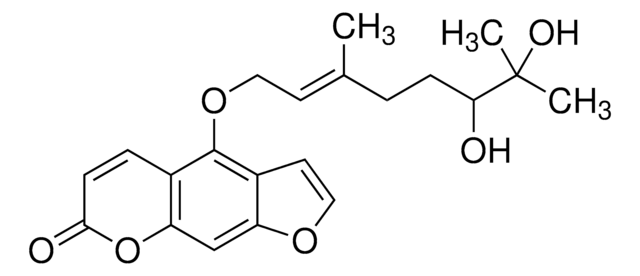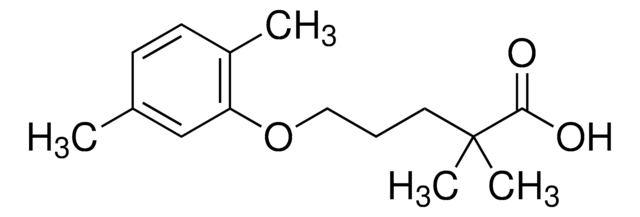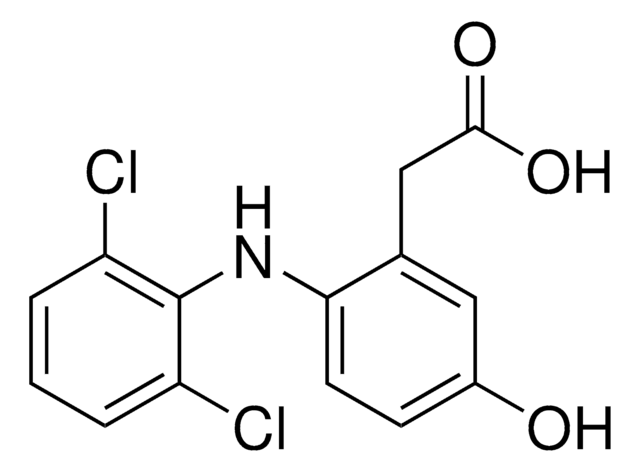UC168
(±)-Bufuralol hydrochloride
≥98% (HPLC), solid, β-Adrenoceptor agonist/antagonist
Synonym(s):
α-[(tert-Butylamino)methyl]-7-ethyl-2-benzofuranmethanol hydrochloride
About This Item
Recommended Products
Product Name
(±)-Bufuralol hydrochloride,
form
solid
Quality Level
color
white to off-white
mp
143-146 °C
solubility
H2O: soluble
methanol: soluble
storage temp.
2-8°C
SMILES string
Cl.CCc1cccc2cc(oc12)C(O)CNC(C)(C)C
InChI
1S/C16H23NO2.ClH/c1-5-11-7-6-8-12-9-14(19-15(11)12)13(18)10-17-16(2,3)4;/h6-9,13,17-18H,5,10H2,1-4H3;1H
InChI key
KJBONRGCLLBWCJ-UHFFFAOYSA-N
Application
Biochem/physiol Actions
Features and Benefits
Packaging
Preparation Note
Storage Class Code
11 - Combustible Solids
WGK
WGK 3
Flash Point(F)
Not applicable
Flash Point(C)
Not applicable
Personal Protective Equipment
Choose from one of the most recent versions:
Certificates of Analysis (COA)
Don't see the Right Version?
If you require a particular version, you can look up a specific certificate by the Lot or Batch number.
Already Own This Product?
Find documentation for the products that you have recently purchased in the Document Library.
Customers Also Viewed
Articles
Discover Bioactive Small Molecules for ADME/Tox
Discover Bioactive Small Molecules for ADME/Tox
Discover Bioactive Small Molecules for ADME/Tox
Discover Bioactive Small Molecules for ADME/Tox
Our team of scientists has experience in all areas of research including Life Science, Material Science, Chemical Synthesis, Chromatography, Analytical and many others.
Contact Technical Service









